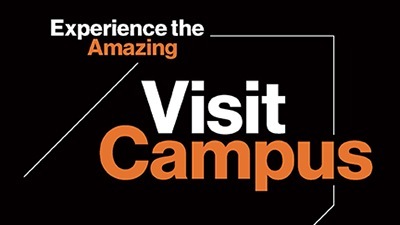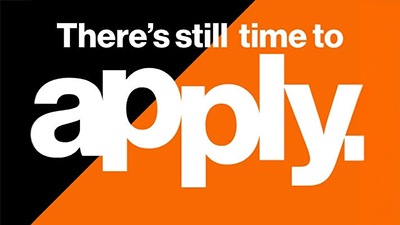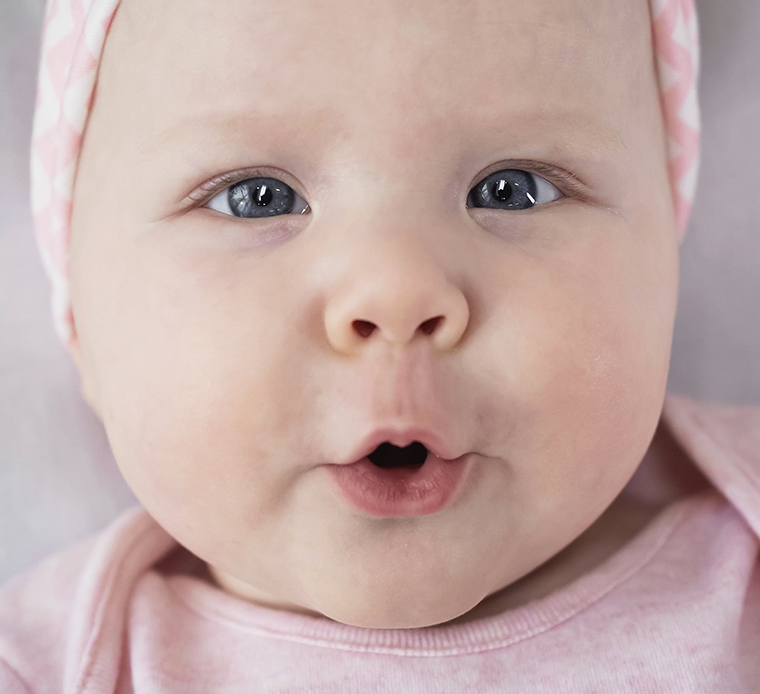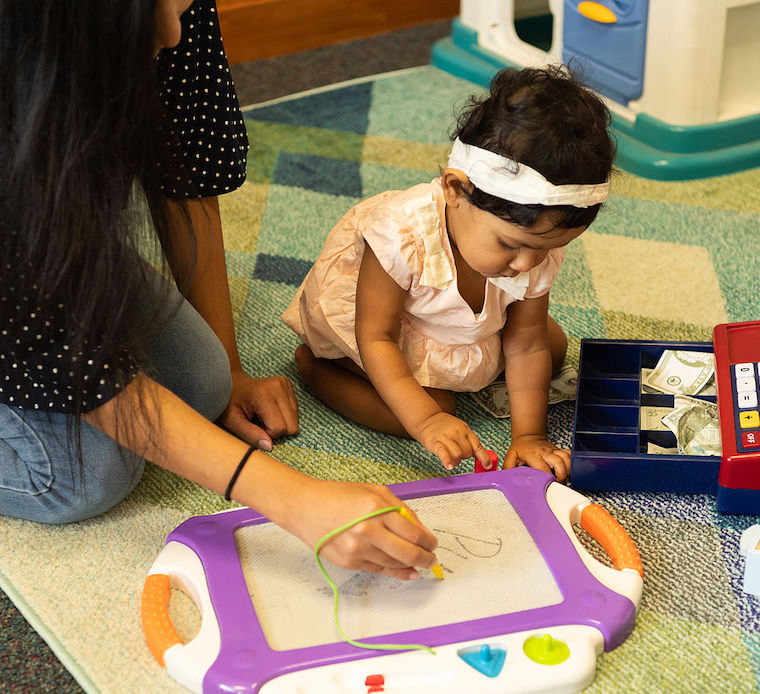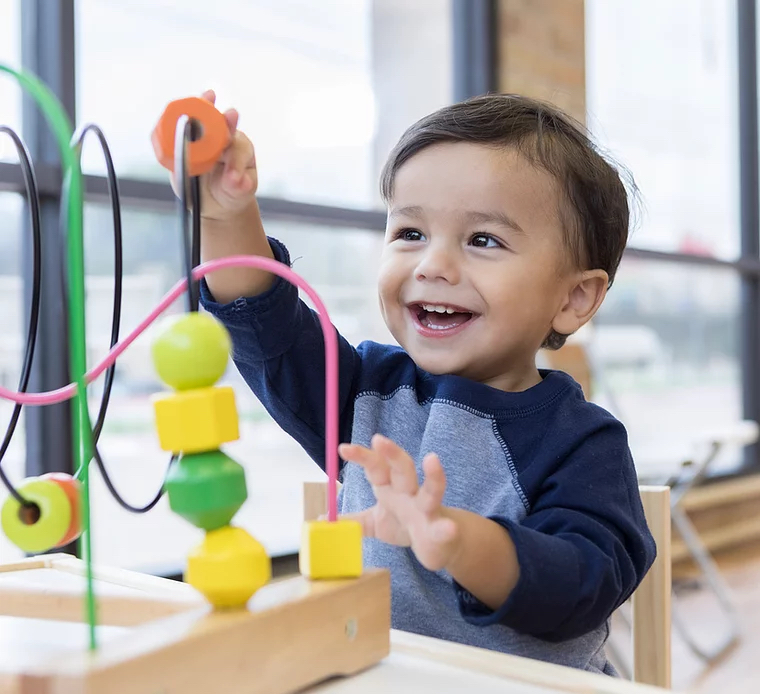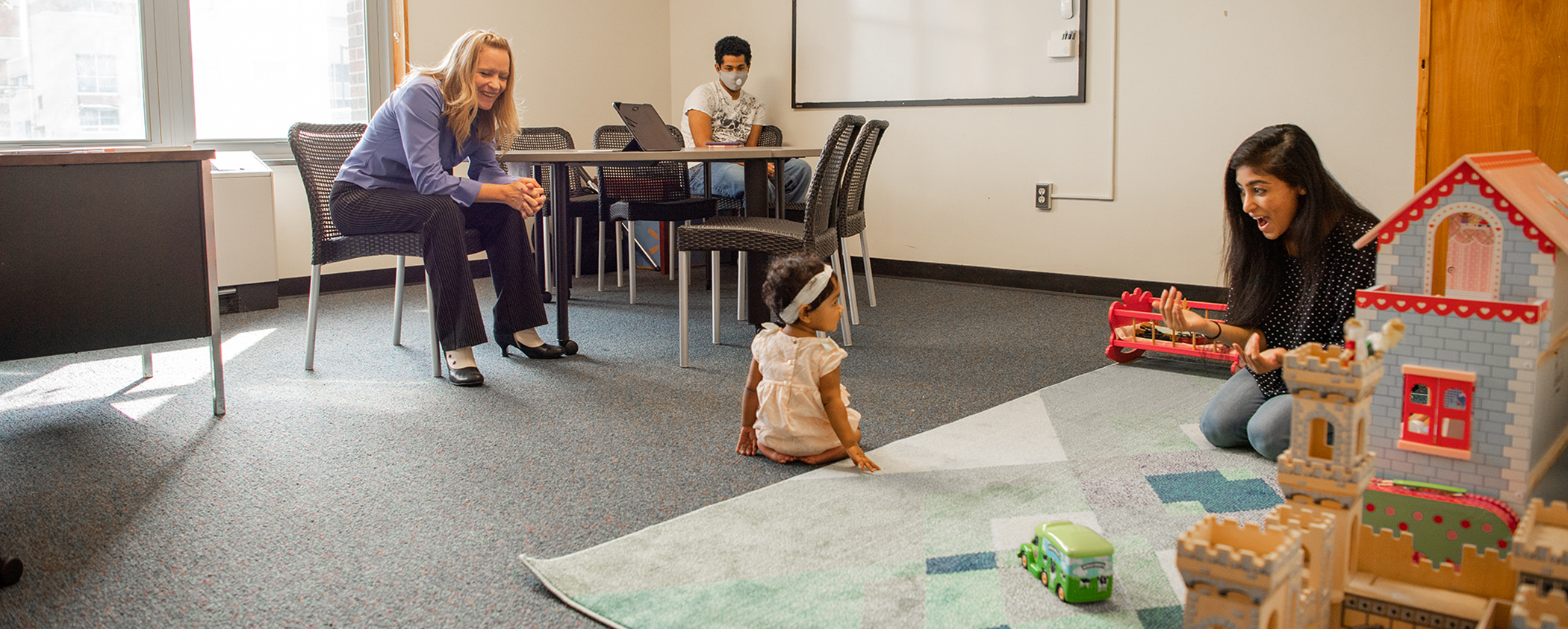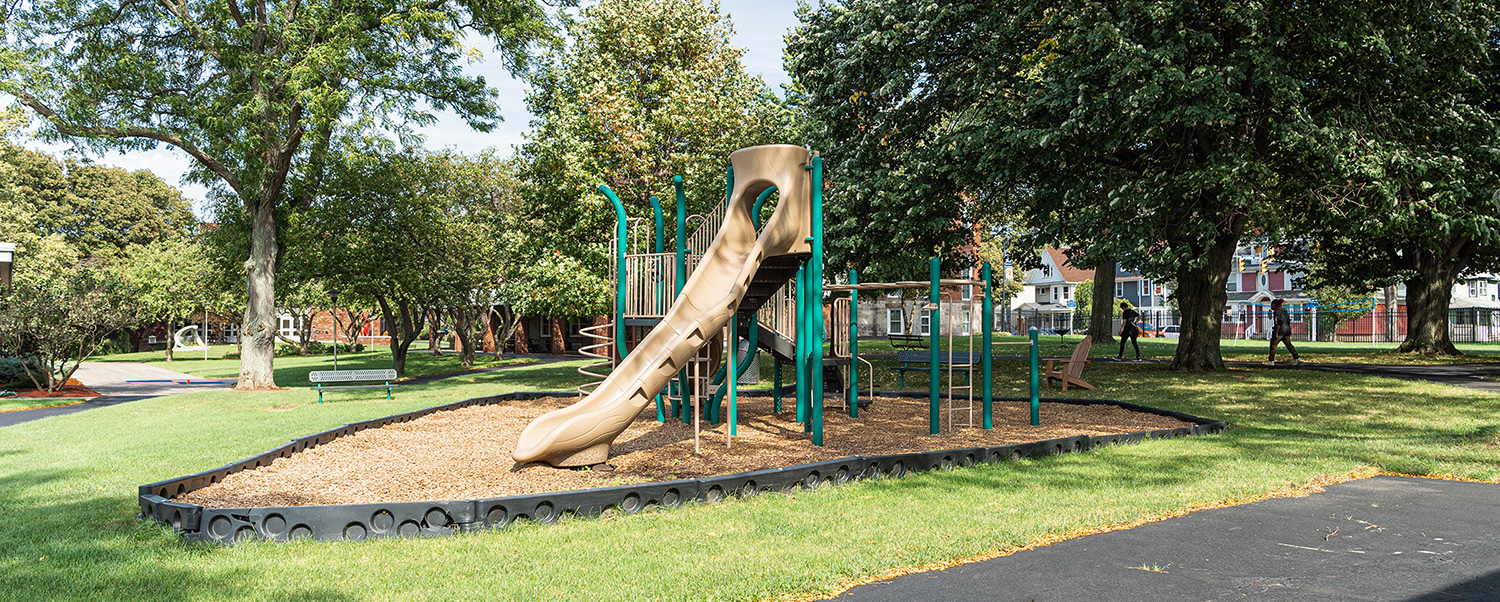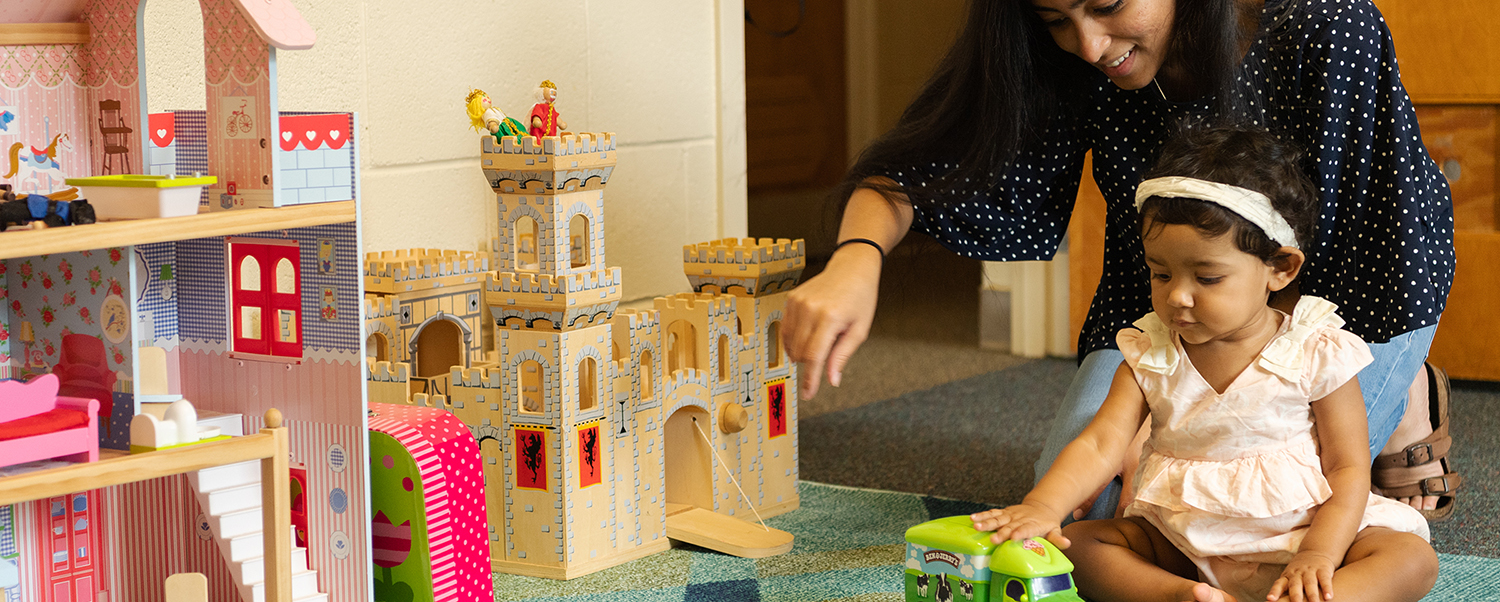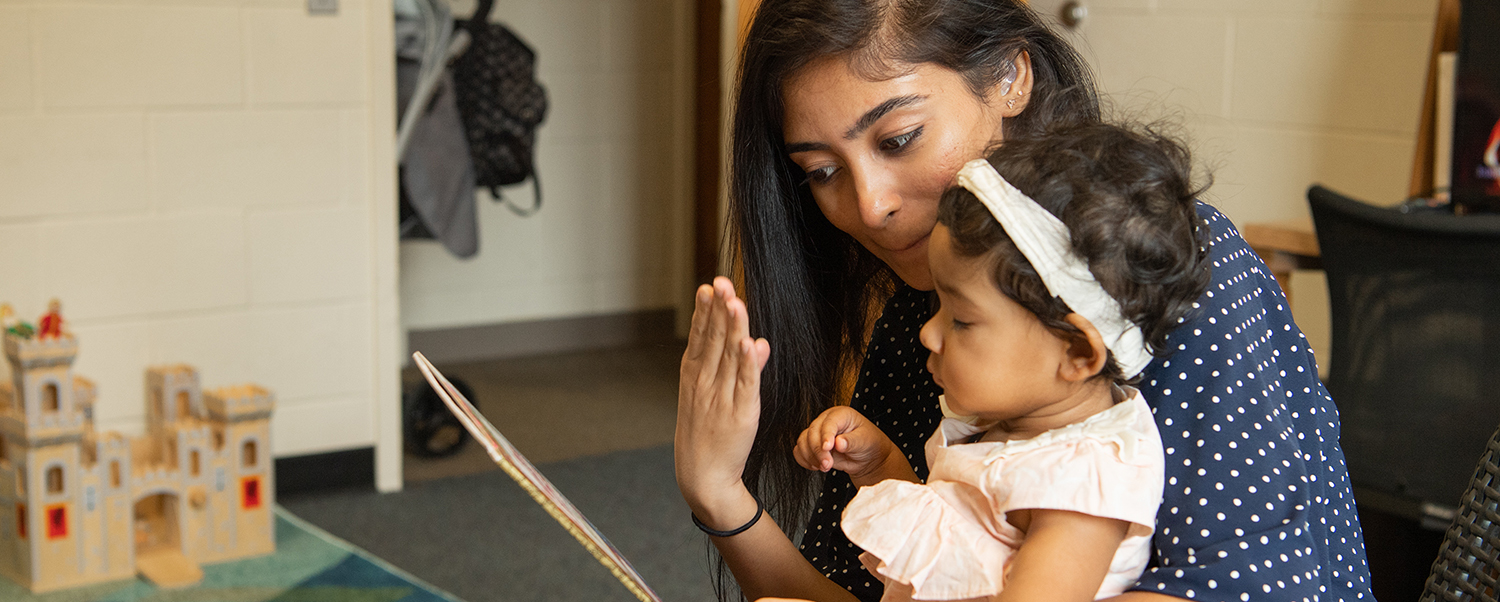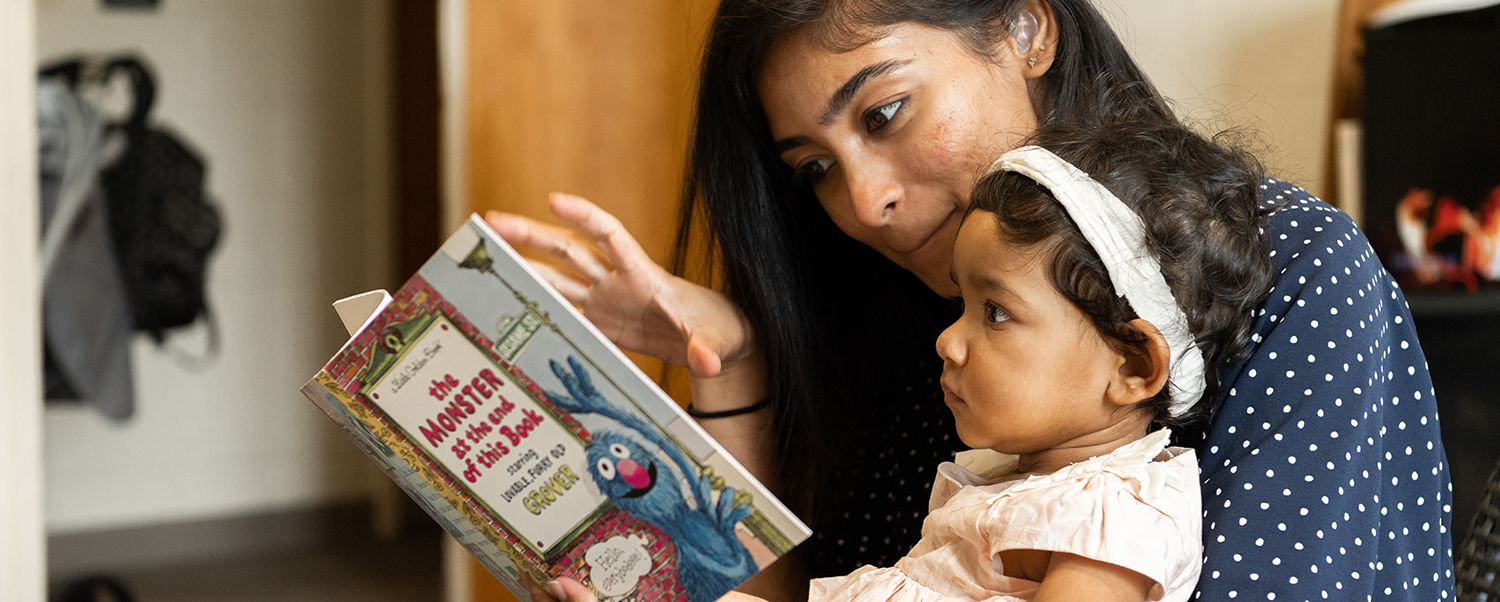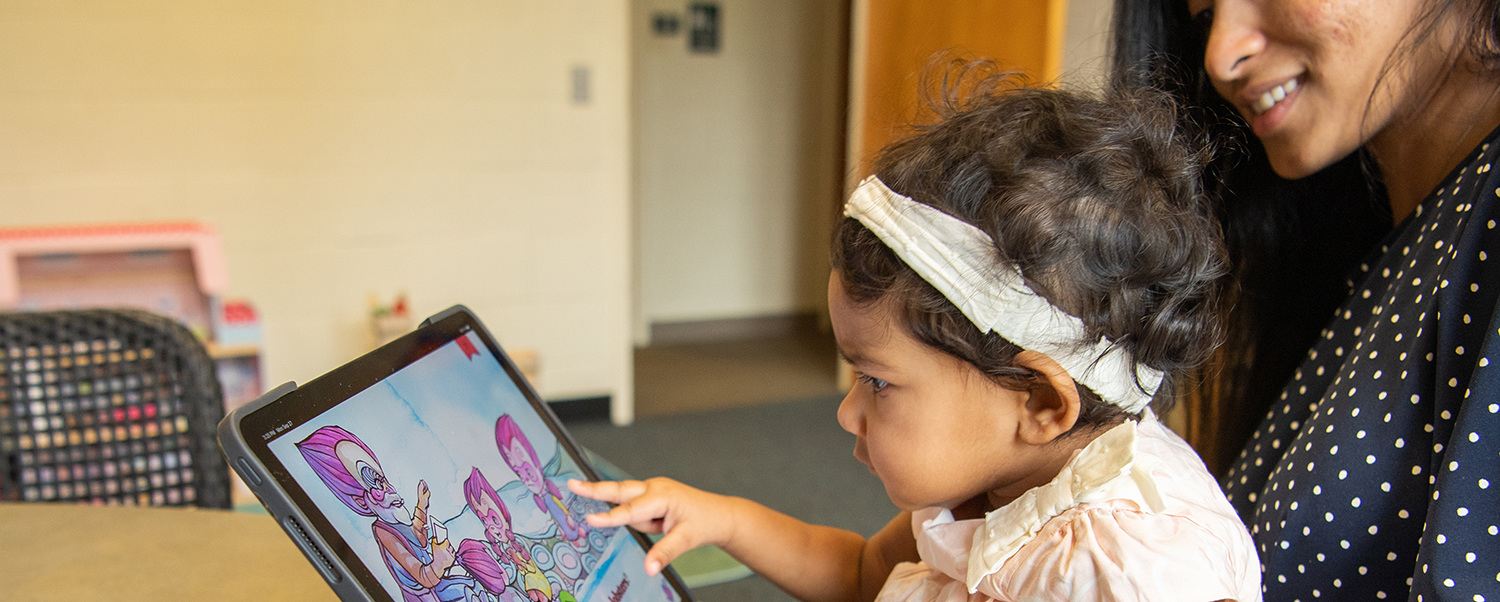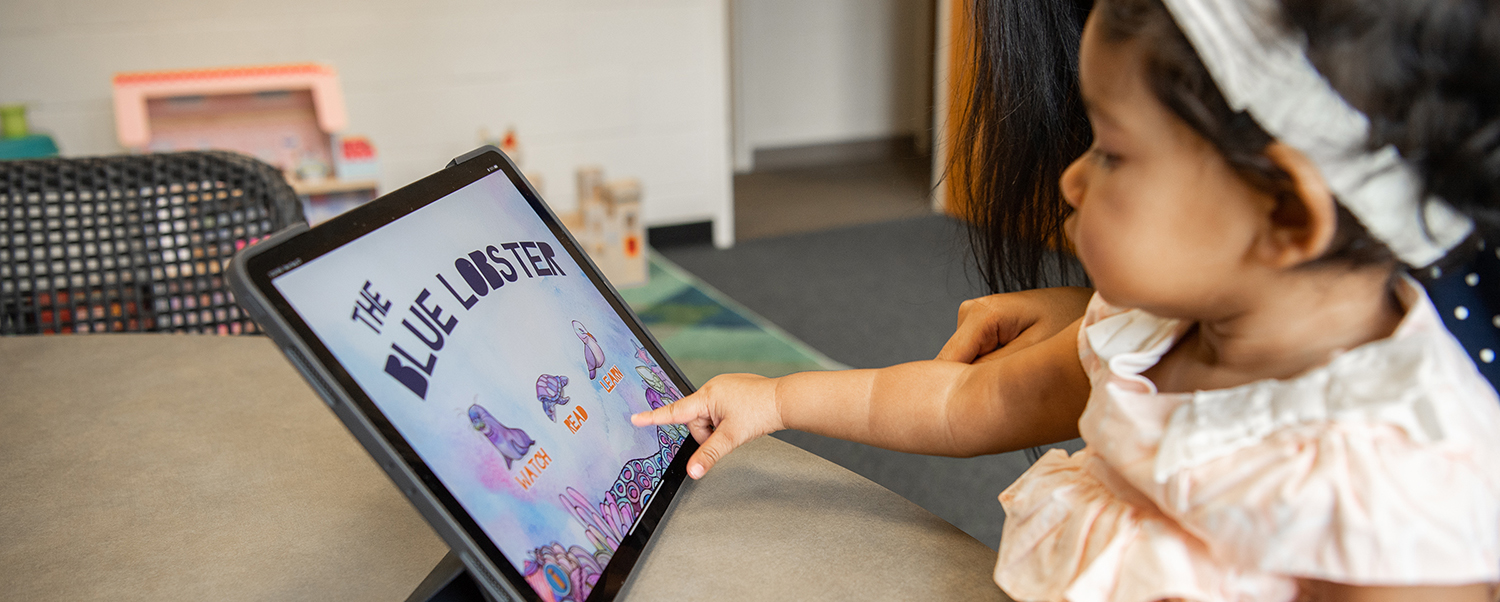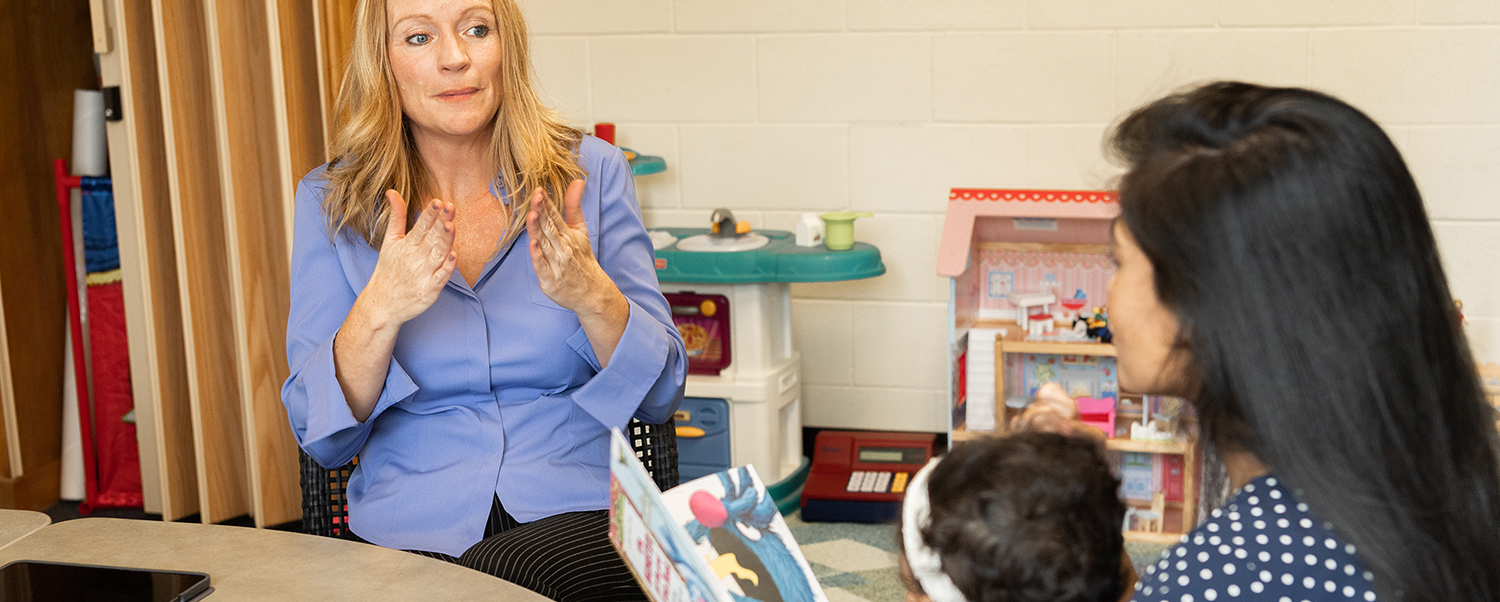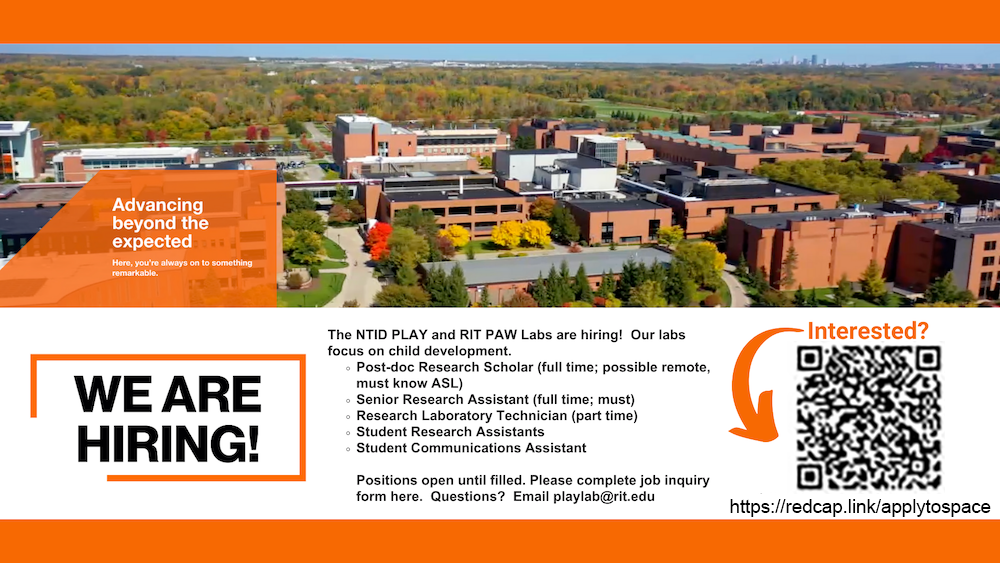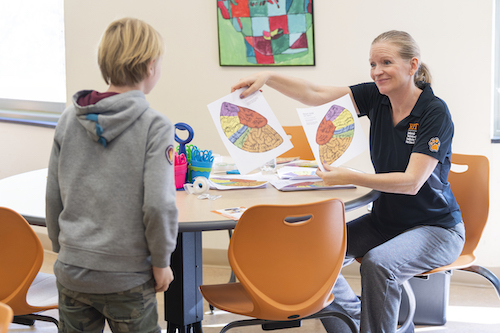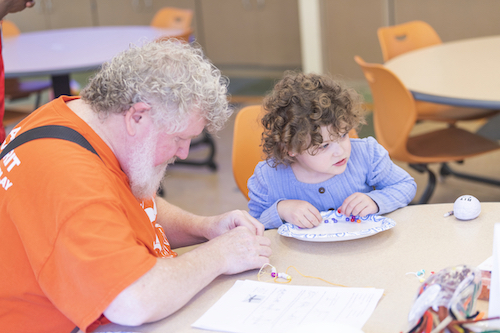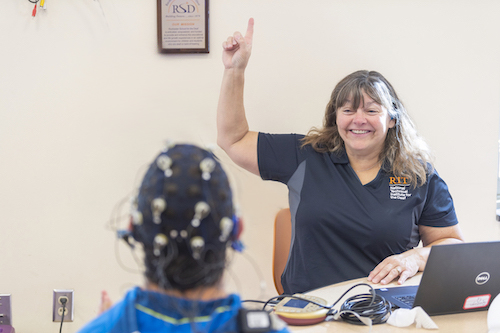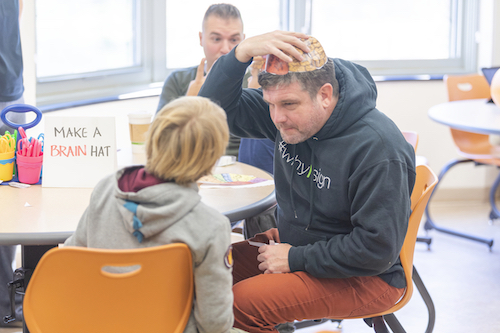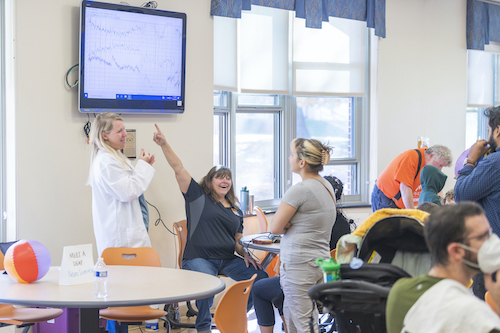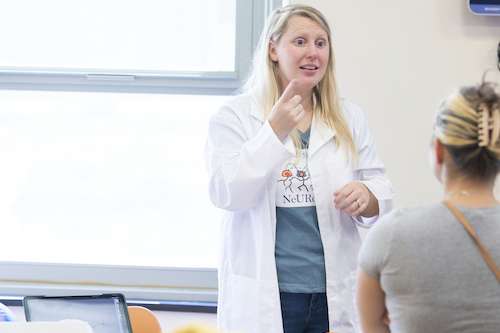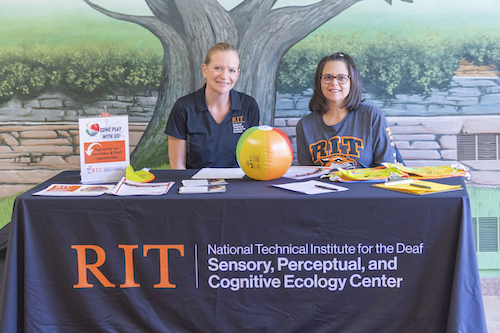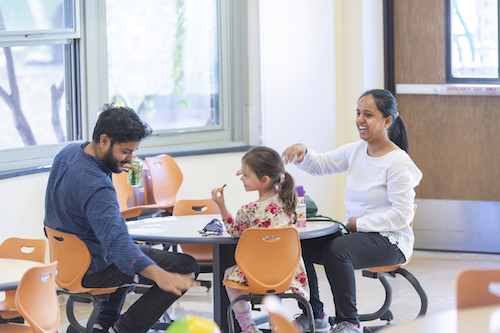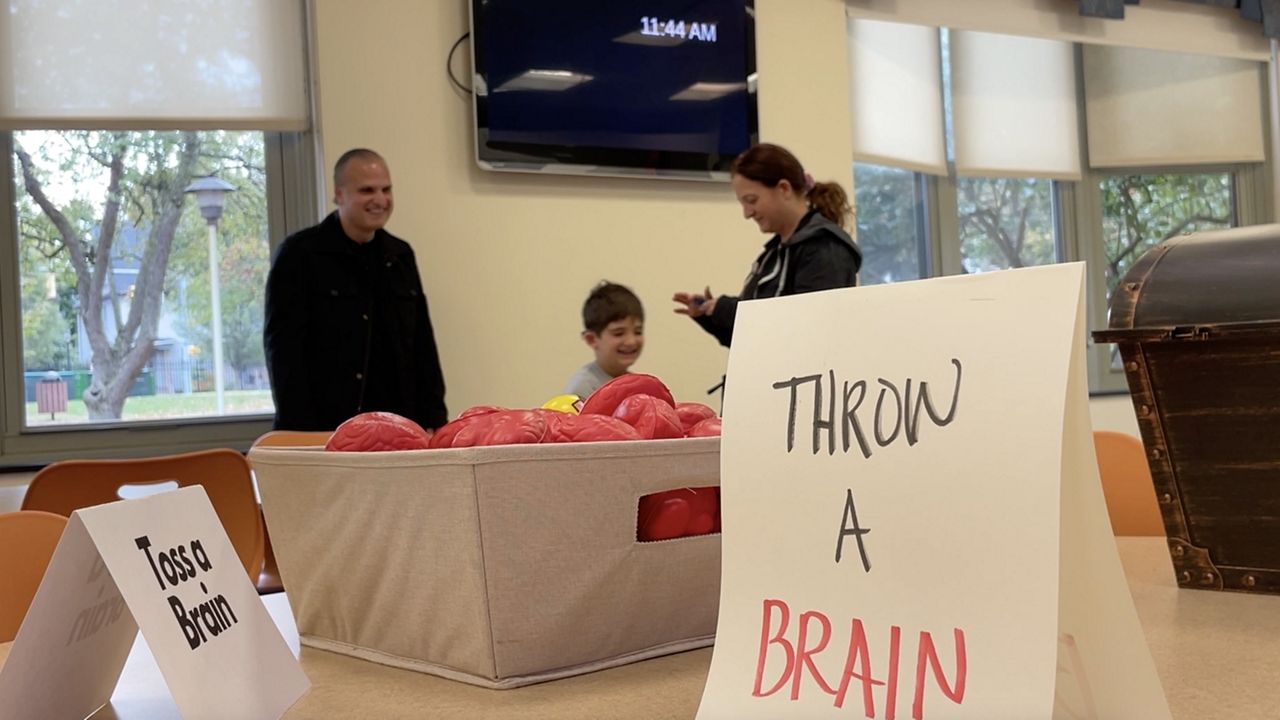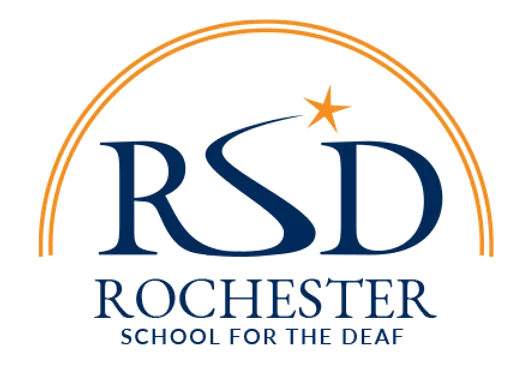Perception, Language and Attention in Youth (PLAY) Lab
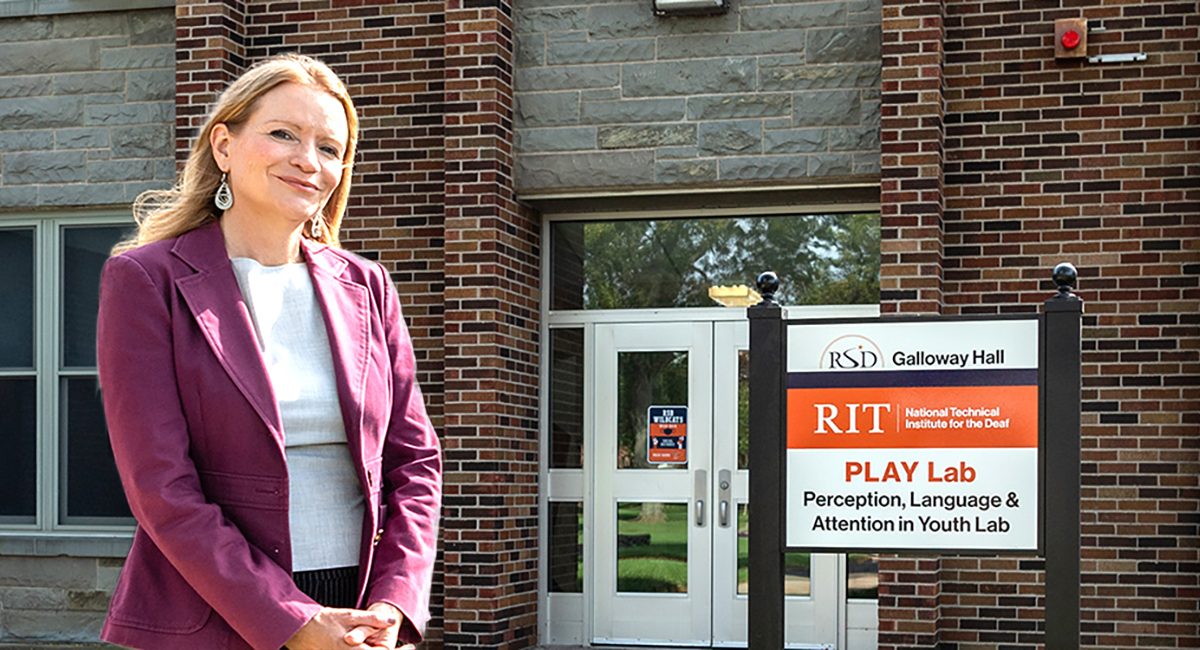
PLAY Lab
The Perception, Language and Attention in Youth (PLAY) Lab's aim is to understand how early sensory experiences shape our visual, cognitive, and language abilities later in life. We study how deaf and hearing children learn through visual sign language, with the goal of understanding human cognition and learning more broadly. We compare behaviors and abilities of deaf and hearing people -- across all ages -- who use signed or spoken language.
Meet Our Team
Our Founder/Director
Rain Bosworth
Dr. Rain Bosworth is an assistant professor in Department of Liberal Studies at RIT/NTID. She is an experimental psychologist, studying development of perception and language in deaf and hearing children using eye-tracking at the newly-founded Perception, Language and Attention in Youth (PLAY) Lab. She got her PhD from the University of California, San Diego, studying visual motion processing and attention in deaf adults. She is currently investigating gaze behavior in infants and children while they watch stories in American Sign Language (ASL). The broad aim is to understand how early sensory input shapes perception, cognition, and language processing.
Our Research Team
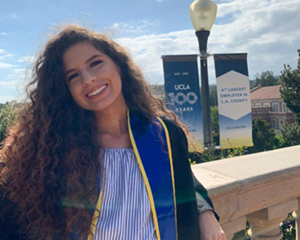 Nicole Taboada is a graduate research assistant working in the NTID PLAY Lab. She received a Bachelor of Arts in Sociology from UCLA in 2020 and is currently working toward a Master’s Degree in Experimental Psychology at RIT. Living and working in academia has only further developed her strong passion for advocacy, research, and deaf education. She hopes to see more Deaf researchers in the coming years and is eager to play her part in reaching that goal. Outside of academia, you can find Nicole playing Tetris on her Nintendo Switch or hanging out with her (5 year old) puppy, Teddy.
Nicole Taboada is a graduate research assistant working in the NTID PLAY Lab. She received a Bachelor of Arts in Sociology from UCLA in 2020 and is currently working toward a Master’s Degree in Experimental Psychology at RIT. Living and working in academia has only further developed her strong passion for advocacy, research, and deaf education. She hopes to see more Deaf researchers in the coming years and is eager to play her part in reaching that goal. Outside of academia, you can find Nicole playing Tetris on her Nintendo Switch or hanging out with her (5 year old) puppy, Teddy.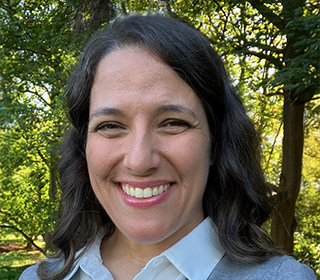 Jessica Wages is the Communications & Outreach Coordinator for the NTID PLAY Lab. Jessica has a bachelor’s degree in Graphic Media Publishing from RIT and an associate’s degree in Art and Computer Design (now Visual Communications Studies) from NTID. She has over 20 years of experience and education in the Graphic Arts field, last job as an Art Director for a custom apparel & promotional products company based in San Diego, California. She also has 10 years of experience in outreach events. Jessica also serves on the Board as their Website Coordinator for Deaf Women of Rochester. Her passion is working with children and people! She enjoys reading during her rare free time and spending time with her husband and 7-year-old KODA.
Jessica Wages is the Communications & Outreach Coordinator for the NTID PLAY Lab. Jessica has a bachelor’s degree in Graphic Media Publishing from RIT and an associate’s degree in Art and Computer Design (now Visual Communications Studies) from NTID. She has over 20 years of experience and education in the Graphic Arts field, last job as an Art Director for a custom apparel & promotional products company based in San Diego, California. She also has 10 years of experience in outreach events. Jessica also serves on the Board as their Website Coordinator for Deaf Women of Rochester. Her passion is working with children and people! She enjoys reading during her rare free time and spending time with her husband and 7-year-old KODA.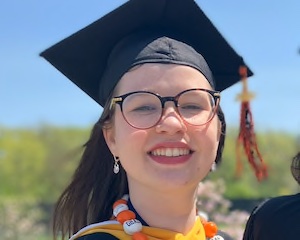 Savannah Tellander is a graduate research assistant working in the NTID PLAY Lab and SPaCE Center. She has a Bachelor of Arts in Religious Studies from California State University, Northridge and is currently working towards a Master’s in Science degree in Experimental Psychology at RIT. She has formal training in interdisciplinary study of Social Science and Brain & Psychological Sciences from UCSB. She also has over 5 years of experience working in early childhood education, childcare, and psychological assessment with deaf, hard-of-hearing, and hearing children–as well as experience serving d/Deaf adult populations in social service and academic settings. She is excited to integrate her social science experience with her studies, and become a Deaf STEMist! When her nose isn’t buried in research, Savannah can be found writing fiction, testing (and tweaking) recipes, and enjoying long nature walks.
Savannah Tellander is a graduate research assistant working in the NTID PLAY Lab and SPaCE Center. She has a Bachelor of Arts in Religious Studies from California State University, Northridge and is currently working towards a Master’s in Science degree in Experimental Psychology at RIT. She has formal training in interdisciplinary study of Social Science and Brain & Psychological Sciences from UCSB. She also has over 5 years of experience working in early childhood education, childcare, and psychological assessment with deaf, hard-of-hearing, and hearing children–as well as experience serving d/Deaf adult populations in social service and academic settings. She is excited to integrate her social science experience with her studies, and become a Deaf STEMist! When her nose isn’t buried in research, Savannah can be found writing fiction, testing (and tweaking) recipes, and enjoying long nature walks.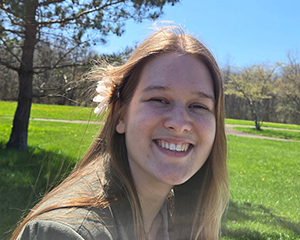 Carrisa Hallock is a part-time student research assistant at the NTID PLAY Lab. She is planning to graduate in 2027 with a B. S. in ASL-English Interpretation. She is especially excited to find out more about children’s language acquisition during the study at the Strong Museum and analyze the differences in pointing behaviors between speaking and signing children. Outside of school and work, Carrisa enjoys singing, baking, crocheting, and being involved with her campus Christian fellowship.
Carrisa Hallock is a part-time student research assistant at the NTID PLAY Lab. She is planning to graduate in 2027 with a B. S. in ASL-English Interpretation. She is especially excited to find out more about children’s language acquisition during the study at the Strong Museum and analyze the differences in pointing behaviors between speaking and signing children. Outside of school and work, Carrisa enjoys singing, baking, crocheting, and being involved with her campus Christian fellowship.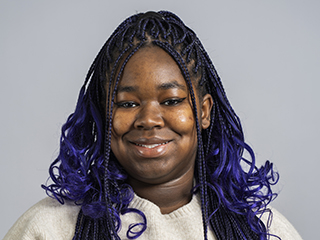 Kierstin Delk is a research assistant working for the NTID PLAY Lab. She is working towards her B.S. in ASL-English Interpreting expecting to graduate in May 2026. She is looking forward to learning more about children's language acquisition and the psychology field. In addition, Kierstin is a resident advisor, student interpreter, and co-president of the Student Interpreting Association on campus. Outside of school and work, Kierstin enjoys baking, art, reading, and playing with her cat Helen.
Kierstin Delk is a research assistant working for the NTID PLAY Lab. She is working towards her B.S. in ASL-English Interpreting expecting to graduate in May 2026. She is looking forward to learning more about children's language acquisition and the psychology field. In addition, Kierstin is a resident advisor, student interpreter, and co-president of the Student Interpreting Association on campus. Outside of school and work, Kierstin enjoys baking, art, reading, and playing with her cat Helen.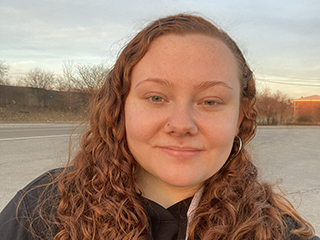 Bella Sellers is currently working part-time as a research assistant at the NTID PLAY Lab, is a fourth-year student from Spring, Texas. She is planning to graduate in Spring 2026 with a Bachelor of Science in Psychology, focusing on developmental and clinical areas, as well as a minor in Criminal Justice and an immersion in Sociology. Bella has a strong passion for child development and advocates for Deaf and Hard-of-Hearing children, particularly concerning mental health and domestic violence. Her commitment to this cause drives her to seek out more accessible resources and better support for the Deaf and Hard-of-Hearing community. After completing her undergraduate degree, she plans to pursue a Master’s in Social Work to further her mission. Beyond her academic interests, Bella enjoys baking, especially brownies. She is also a selenophile—cherishing her love for the moon—and spends her leisure time watching crime documentaries and shows with her cat, Selene.
Bella Sellers is currently working part-time as a research assistant at the NTID PLAY Lab, is a fourth-year student from Spring, Texas. She is planning to graduate in Spring 2026 with a Bachelor of Science in Psychology, focusing on developmental and clinical areas, as well as a minor in Criminal Justice and an immersion in Sociology. Bella has a strong passion for child development and advocates for Deaf and Hard-of-Hearing children, particularly concerning mental health and domestic violence. Her commitment to this cause drives her to seek out more accessible resources and better support for the Deaf and Hard-of-Hearing community. After completing her undergraduate degree, she plans to pursue a Master’s in Social Work to further her mission. Beyond her academic interests, Bella enjoys baking, especially brownies. She is also a selenophile—cherishing her love for the moon—and spends her leisure time watching crime documentaries and shows with her cat, Selene.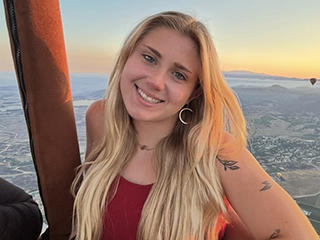 Sophie Colatoy is a research assistant working for the NTID PLAY lab. Sophie is a 3rd year from Rochester and is working towards her B.S in ASL-English Interpreting, with a double major in Criminal Justice. She plans to graduate in June of 2027 and continue her career in interpreting and hopefully work in domestic violence. In the meantime she is excited for her work in the lab to broaden her knowledge and work with children. In her free time, Sophie runs the Women's Club Volleyball team, rock climbs, and enjoys traveling.
Sophie Colatoy is a research assistant working for the NTID PLAY lab. Sophie is a 3rd year from Rochester and is working towards her B.S in ASL-English Interpreting, with a double major in Criminal Justice. She plans to graduate in June of 2027 and continue her career in interpreting and hopefully work in domestic violence. In the meantime she is excited for her work in the lab to broaden her knowledge and work with children. In her free time, Sophie runs the Women's Club Volleyball team, rock climbs, and enjoys traveling. Our Collaborators
Play Lab Alumni
| Name | Major | Terms Worked |
|---|---|---|
| Dr. Carly Leannah | PhD in Educational Neuroscience | Winter 2024 - Summer 2025 |
| Finn Cohen | BS in Psychology | Fall 2024 - Fall 2025 |
| Nick Despins | Biomedical Engineering and Exercise Science | Spring 2024 |
| Michaela Kihntopf | BS in Psychology/Neurobiology | Fall 2023 - Spring 2025 |
| Olivia Borkowski | ASL Interpreting | Summer 2023 |
| Karen Putz | MS in Deaf Rehabilitation Counseling | Spring 2022 - Fall 2024 |
| Adrita Arefin | MS in Human-Computer Interaction | 2021-22 & 2023-24 |
Join Our Lab
We are recruiting postdocs, staff, graduate students, and undergraduates! Coming together from a wide variety of backgrounds, our team members are the backbone of PLAY Lab. Their ideas bring diverse ideas to help shape the direction and mission of our research. Read on to learn more about how you can get involved.
More information and how to apply
Open Positions
The NTID PLAY and RIT PAW Labs are hiring! Our labs focus on child development.
- Post-doc Research Scholar (full time; possible remote, must know ASL)
- Senior Research Assistant (full time; must)
- Research Laboratory Technician (part time)
- Student Research Assistants
- Student Communications Assistant
Positions open until filled.
Please complete job inquiry form here: https://redcap.link/applytospace
Questions? Email playlab@rit.edu
PhD Graduate Students
RIT’s Cognitive Science Ph.D. provides an interdisciplinary study of the human mind that combines insights from psychology, computer science, linguistics, neuroscience, augmented reality, and philosophy. Inquire for more information.
NSF Research Traineeship
Graduate students from associated RIT Ph.D. and MS programs are invited to review information on how to apply and benefits for Trainees at our NSF Research Traineeship website. Women, Deaf or Hard-of-Hearing, and African American, Latino/a American, or Native American students are especially encouraged to apply. A video describing the program in ASL is available here.
Earn Pay or Course Credit as an Undergraduate Research Assistant in the Lab
Undergraduate students can receive pay or course credit working on research projects in the SPaCE Center. The Center is made up of several labs, including deaf x lab, NTID PLAY Lab, PAW Lab, and RITE Lab. This opportunity provides exposure to a variety of methods used in psychological research, including behavioral experiments (measuring response time and accuracy), eye tracking, EEG, and observational studies. This is ideal for NTID or RIT students majoring in psychology, cognitive science, language sciences, or computer science. Graduate students are also encouraged to apply using this form. Click here to complete an online form to apply.
News
'Brainy Day' spreads education on the deaf community through play
October 14, 2023
The National Technical Institute for the Deaf’s “Brainy Day” community event in Rochester highlighted the fun in learning for children and their families. The event not only showed children the support they have, but also the community they have.
-
April 29, 2024

Rain Bosworth studies how deaf children experience the world
ScienceNews talks to Rain Bosworth, associate professor in the Department of Liberal Studies, about her research.
-
August 7, 2023

Deaf children’s learning during museum experiences is focus of research study
New research exploring how deaf and hearing preschool-aged children learn through interactive play with their parents is the focus of a partnership between RIT’s National Technical Institute for the Deaf and The Strong National Museum of Play.
-
May 9, 2022

New lab studies cognitive development in children
Rain Bosworth, an assistant professor and experimental psychologist at RIT’s National Technical Institute for the Deaf, has created a new research lab that will help scientists learn more about cognition, language, and perception in infants and young children.
-
November 17, 2025
Tellander, Fitch, and Bosworth present at Conference on Language Development
-
November 1, 2024
Bosworth research on sign-language acquisition cited
-
December 7, 2023
Bosworth presents on ableist sampling in psychology research
-
August 17, 2022
NTID SPaCE Center researchers to present at conference
Publications
Please also see my Google Scholar or ResearchGate profiles for PDFs.
Mercure, E., Bosworth, R., & Gliga, T. (2025). Diverse language experiences in Deaf infants and in hearing infants with Deaf parents: 25 years of improved understanding and recognition. Infant Behavior and Development. DOI: 10.1016/j.infbeh.2025.102103
Bosworth, R.G., Hwang S.O., & Corina, D.P. (2022). Visual Attention for Linguistic and Non-Linguistic Body Actions in Non-signing and Native Signing Children. Frontiers in Psychology, 4799. (video abstract)
Bosworth, R.G., Tyler, S.C., Binder, E.M. & Morford, J.P. (2021). Automaticity of lexical access in deaf and hearing bilinguals: Cross-linguistic evidence from the color Stroop task across five languages. Cognition, 212, 104659. (video)
Bosworth, R.G. & Stone, A. (2021). Rapid Development of Perceptual Gaze Control in Native Signing Infants and Children. Developmental Science, doi:10.1111/desc.13086.
Bosworth, R.G., Stone, A., & Hwang S.-O. (2020). Effects of Video Reversal on Gaze Patterns during Signed Narrative Comprehension, Journal of Deaf Studies and Deaf Education, 25(3). 283–297.
Bosworth, R.G., Wright, C.E., & Dobkins, K.R. (2019). Analysis of the visual spatiotemporal properties of American Sign Language. Vision Research, 164, 34-43.
Stone, A. & Bosworth, R.G. (2019) Exploring Infant Sensitivity to Visual Language using Eye Tracking and the Preferential Looking Paradigm. Journal of Visualized Experiments (JoVE), 147, e59581.
Stone, A., Petitto, L.A., & Bosworth, R.G. (2017). Visual sonority modulates infants’ attraction to sign language. Language Learning and Development, 14(2):130-148.
Blumenthal E., Bosworth R.G., & Dobkins K.R. (2013). Fast Development of Global Motion Processing in Human Infants. Journal of Vision, 13(13) article 8.
Bosworth, R.G., Robbins, S.L., Granet, D.B. & Dobkins, K.R. (2013). Delayed luminance and chromatic contrast sensitivity in infants with Retinopathy of Prematurity. Documenta Ophthalmologica, 127(1), 57-68.
Bosworth, R.G., Petrich, J.A.F., & Dobkins, K.R. (2013). Effects of attention and laterality on motion and orientation discrimination in deaf signers. Brain & Cognition, 82(1), 117-126.
Bosworth, R.G. & Dobkins, K.R. (2013). Effects of prematurity on the development of contrast sensitivity: Testing the visual experience hypothesis. Vision Research, 82(19), 31-41.
Bosworth, R.G., Petrich, J.A.F. & Dobkins K.R. (2012). Effects of spatial attention on motion discrimination are greater in the left than right visual field. Vision Research, 52(1), 11-19.
Bosworth, R.G. & Emmorey, K. (2010). Effects of iconicity and semantic relatedness on lexical access in American Sign Language. Journal of Experimental Psychology, 36(6), 1573-81.
Bosworth, R.G. & Dobkins, K.R. (2009). Chromatic and luminance contrast sensitivity in fullterm and preterm infants. Journal of Vision, 9(13), 15, 1-16.
Dobkins, K.R., Bosworth, R.G., & McCleery, J. (2009). Effects of gestational length, gender, postnatal age, and birth order on visual contrast sensitivity in infants. Journal of Vision, 9(10), 19, 1-21.
Emmorey, K., Bosworth, R.G., & Kraljic, T. (2009). Visual feedback and self-monitoring of sign language. Journal of Memory and Language, 61, 398-411.
Donations
The PLAY Lab is a critical resource in building a better understanding of how early sensory experiences shape our children’s visual, cognitive, and language abilities later in life. A major portion of our research focuses on the development and support of Deaf/Hard-of-Hearing children. While we are fortunate to have received support for our research, there is an ongoing need for general operating support of the Lab. Funding to maintain equipment, employ research assistants, support travel to conferences, and more, is critical in facilitating our work and in disseminating all that we will learn. If you are interested in supporting the PLAY Lab, please contact Bryan Hensel, NTID Office of External Affairs, at Bryan.Hensel@rit.edu or at (585) 475-6222. Thank you for your generosity.
For study and
research info,
email:
playlab@rit.edu



